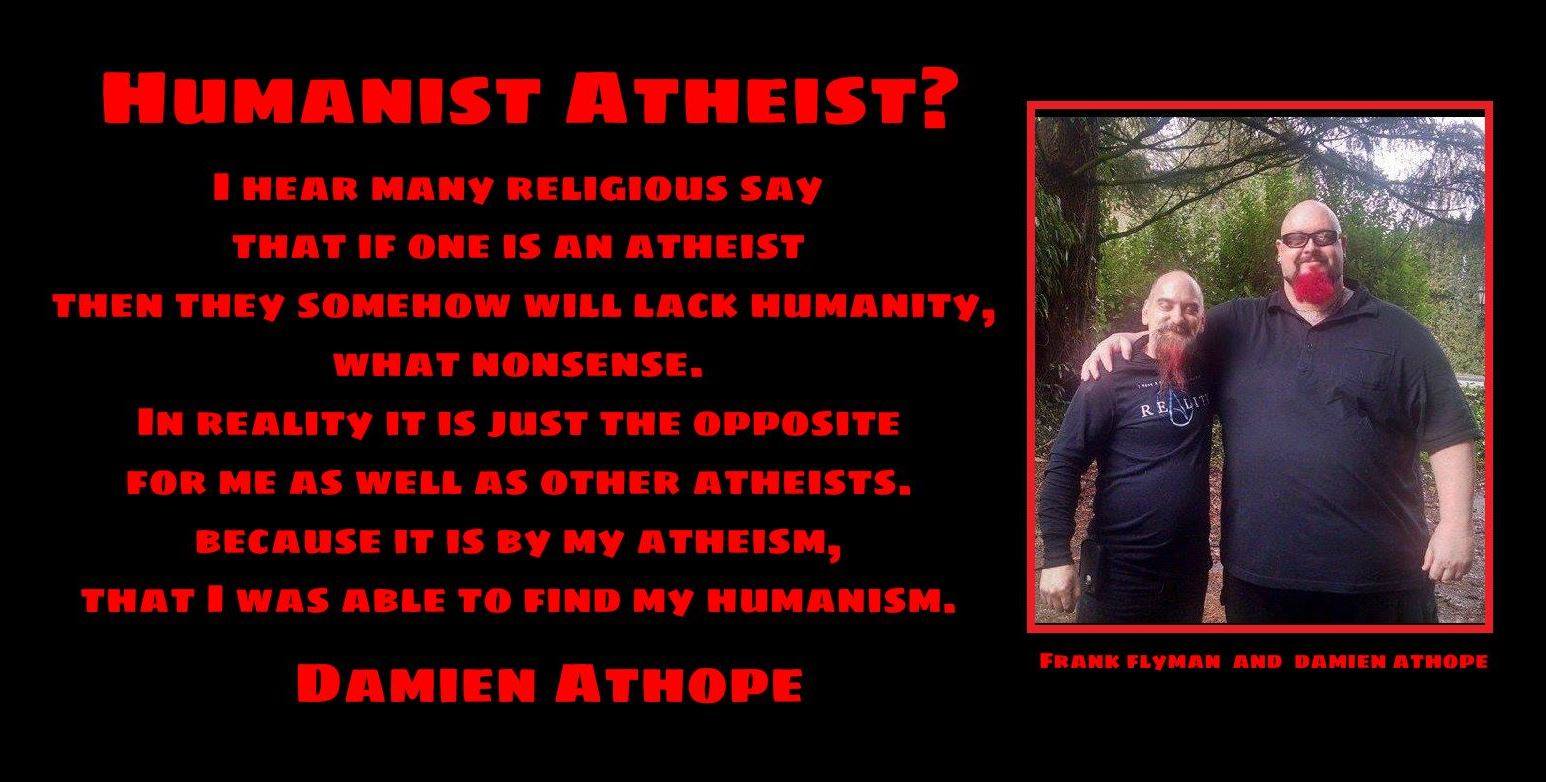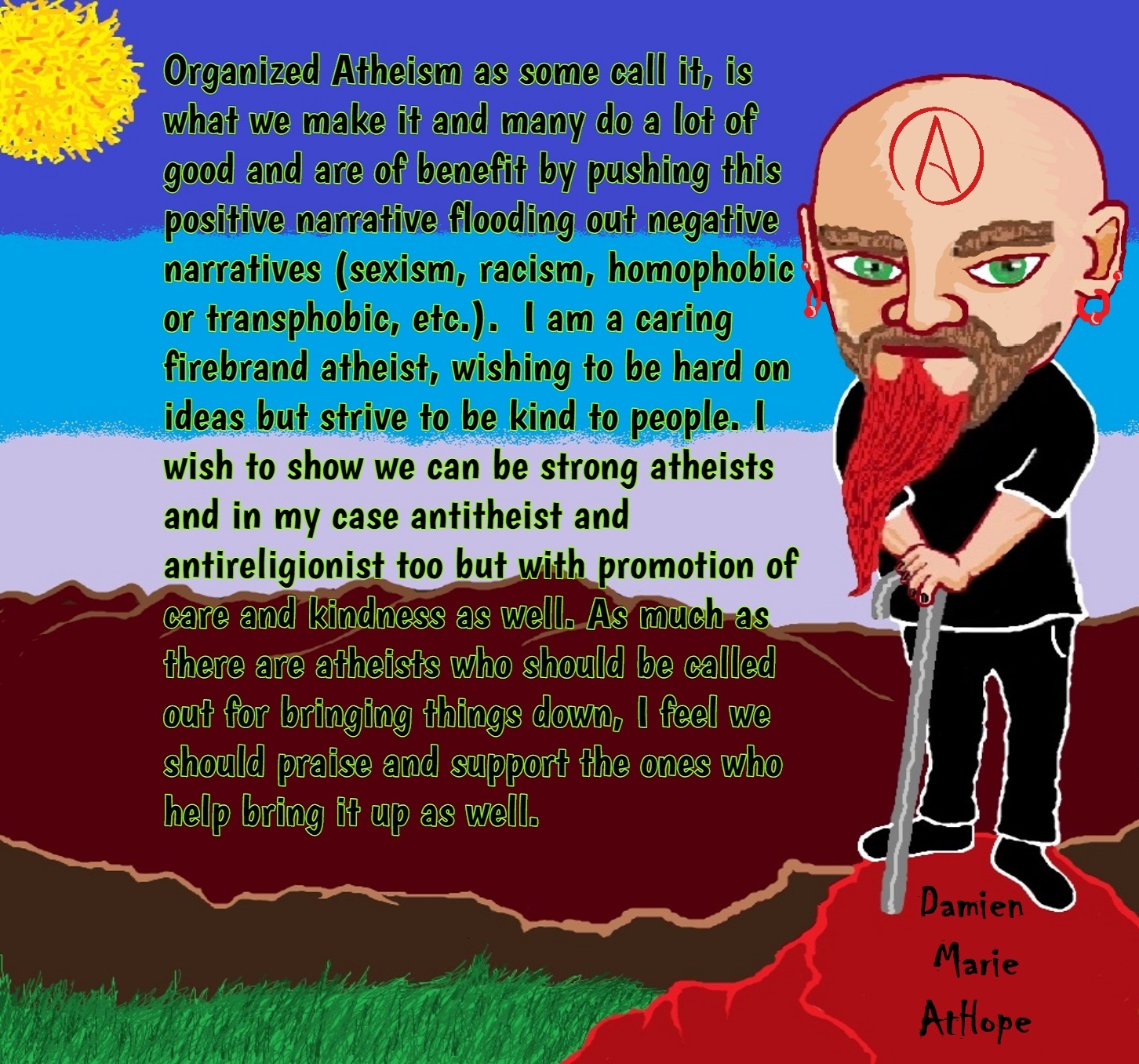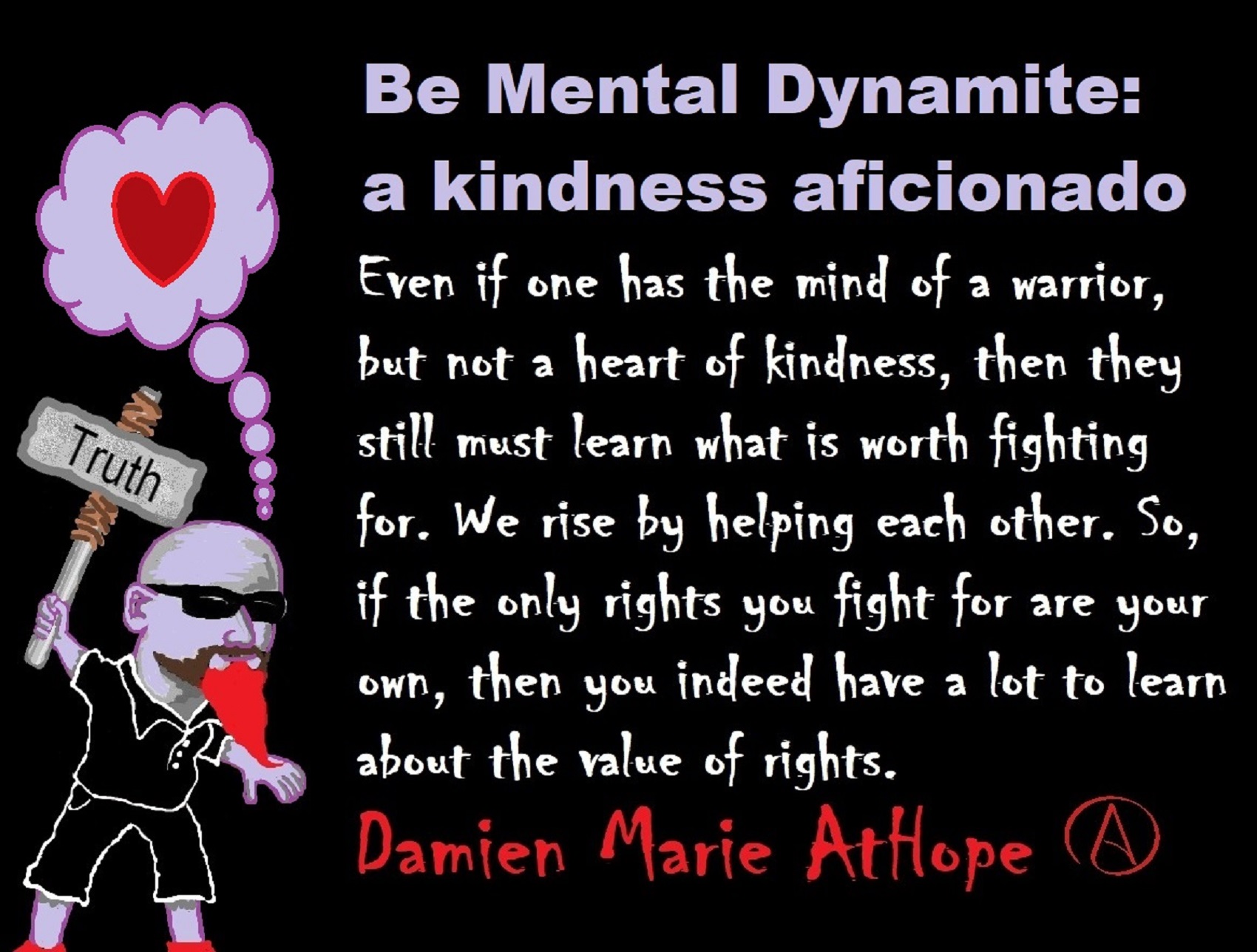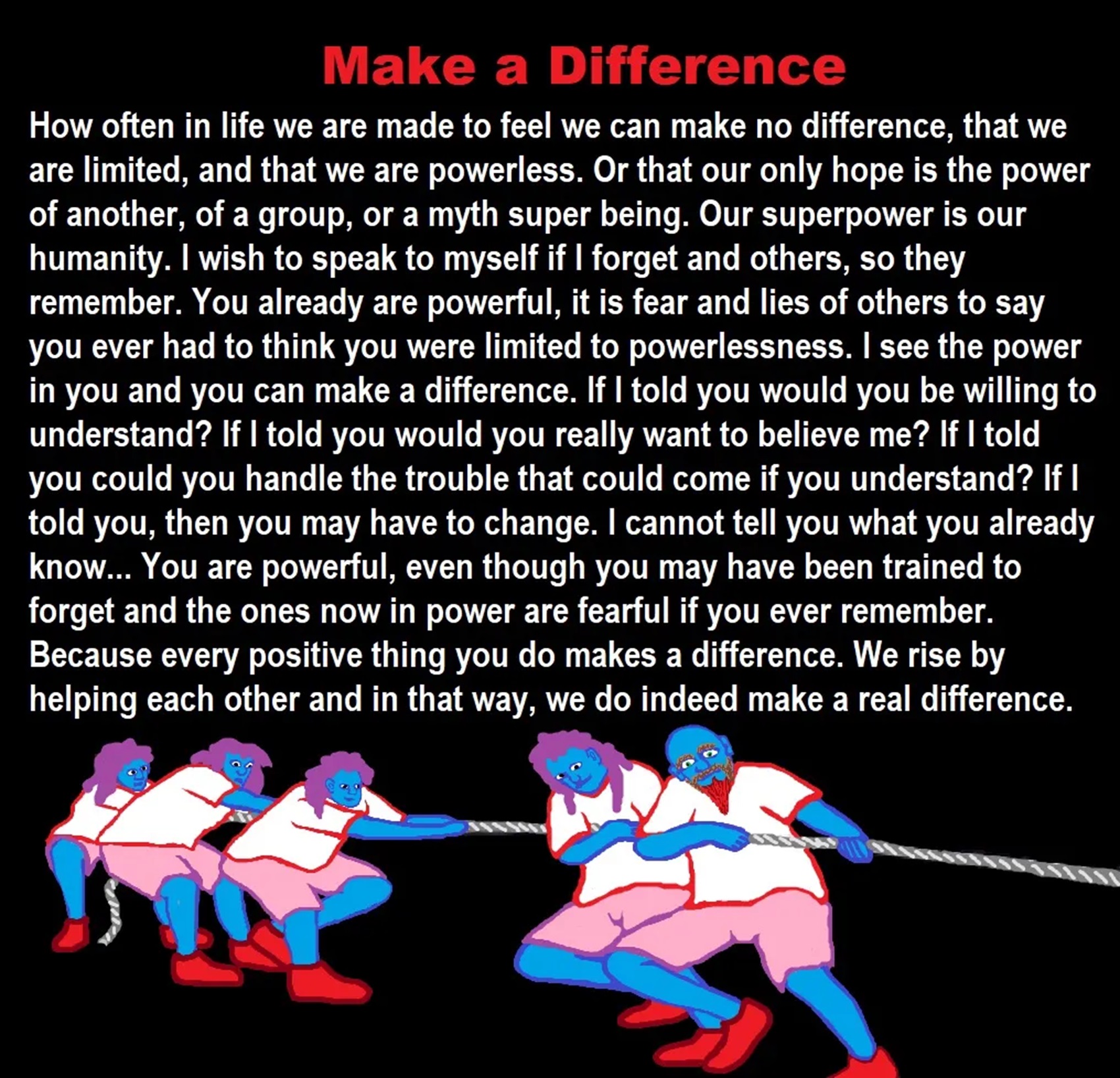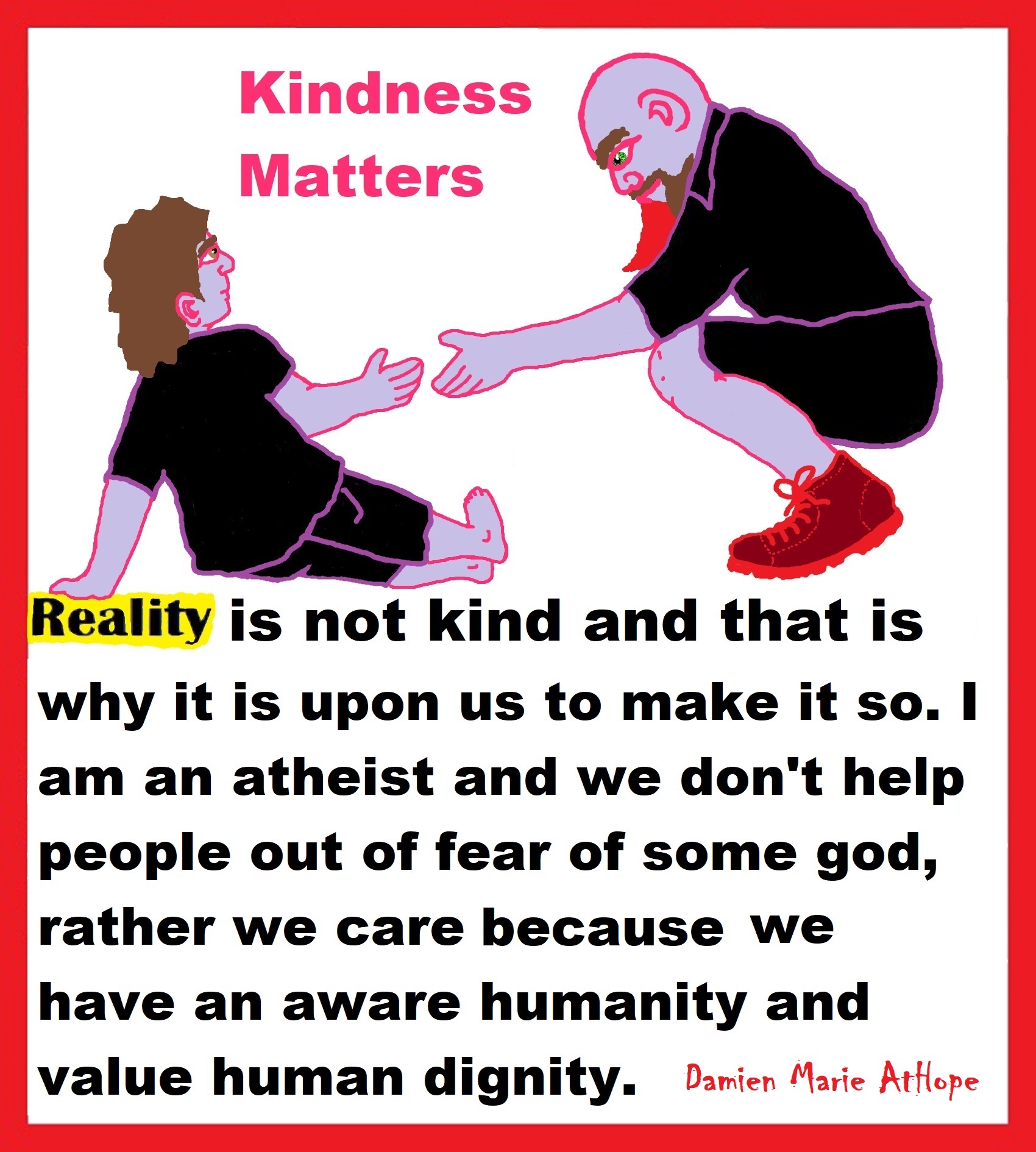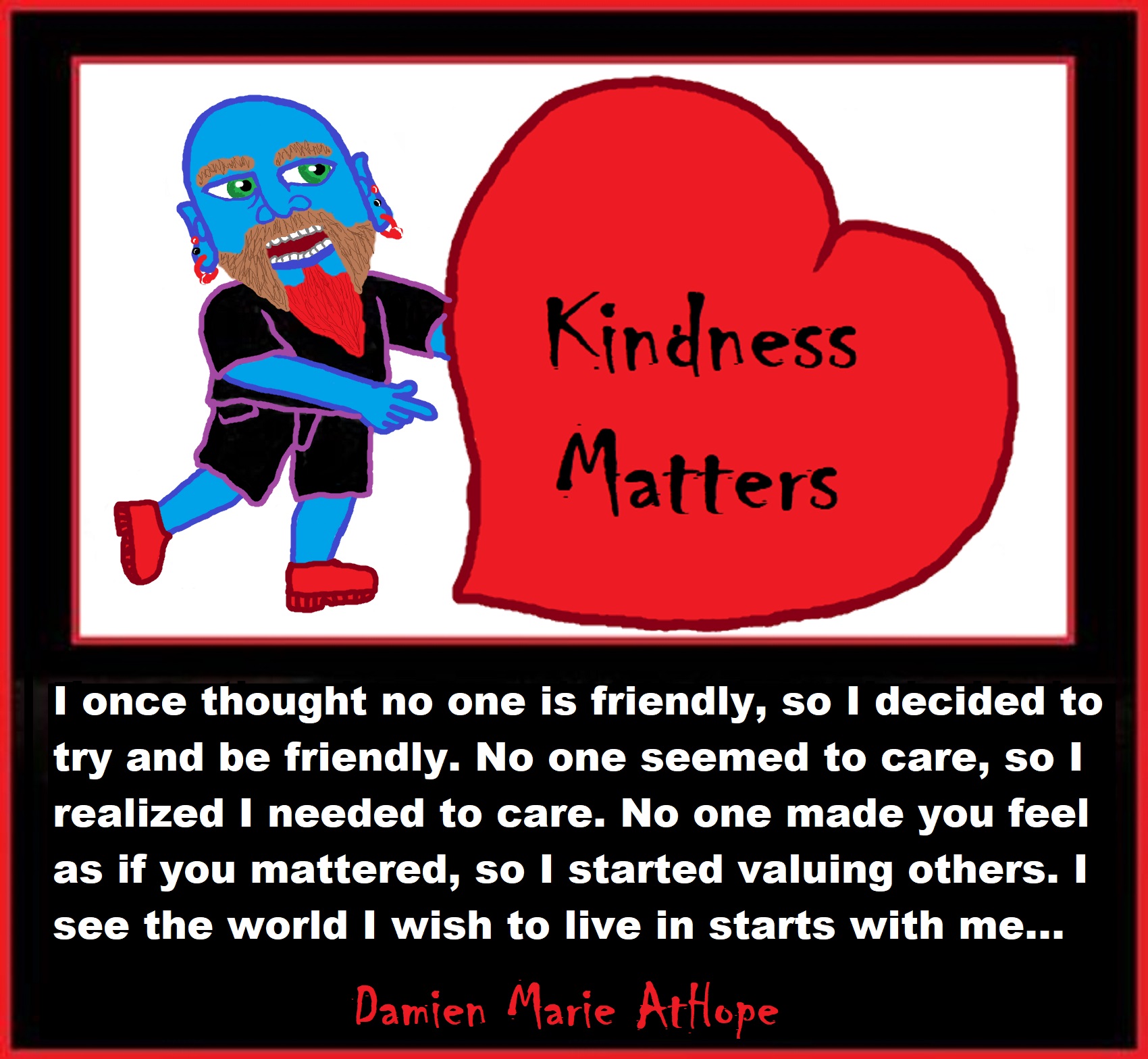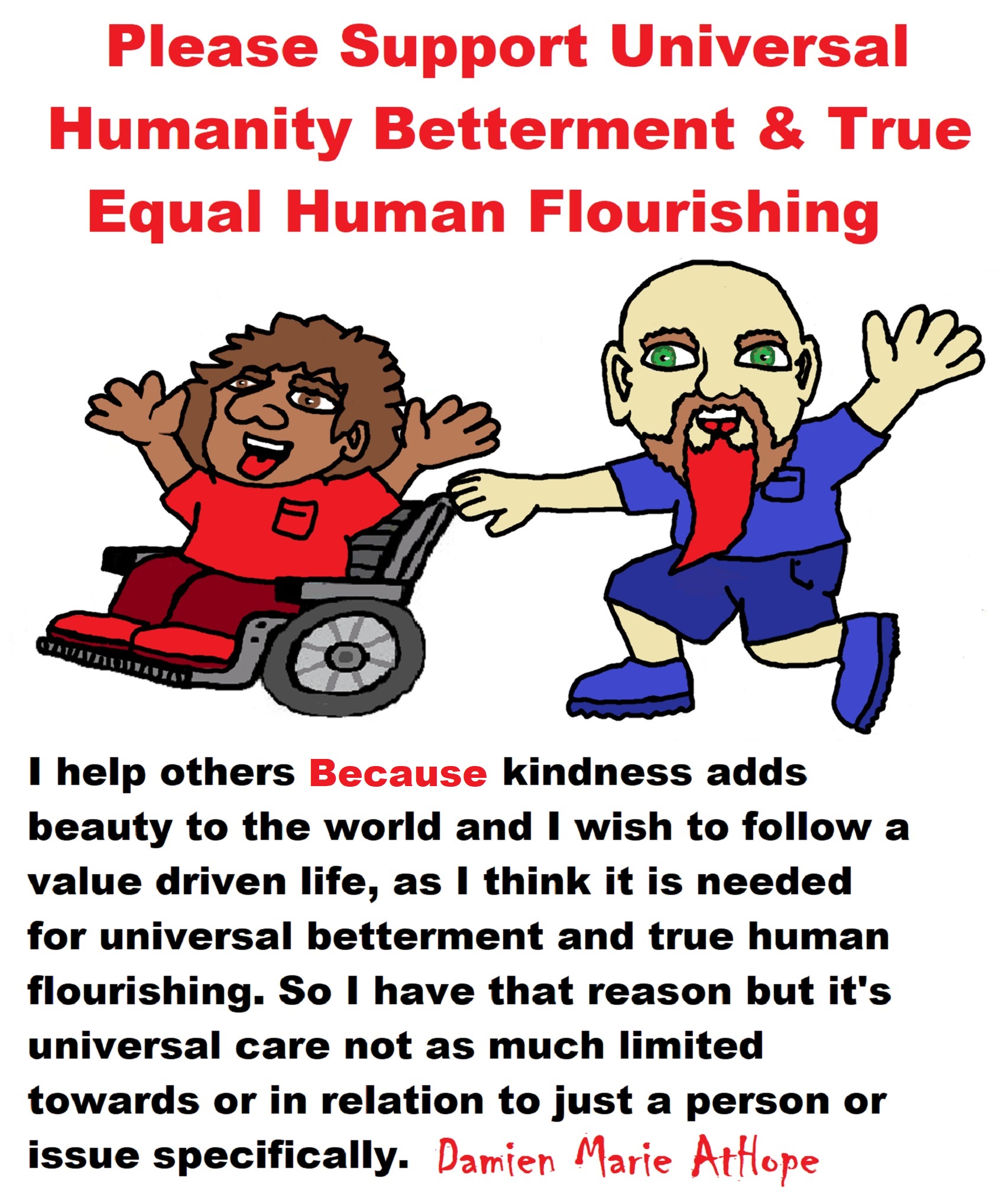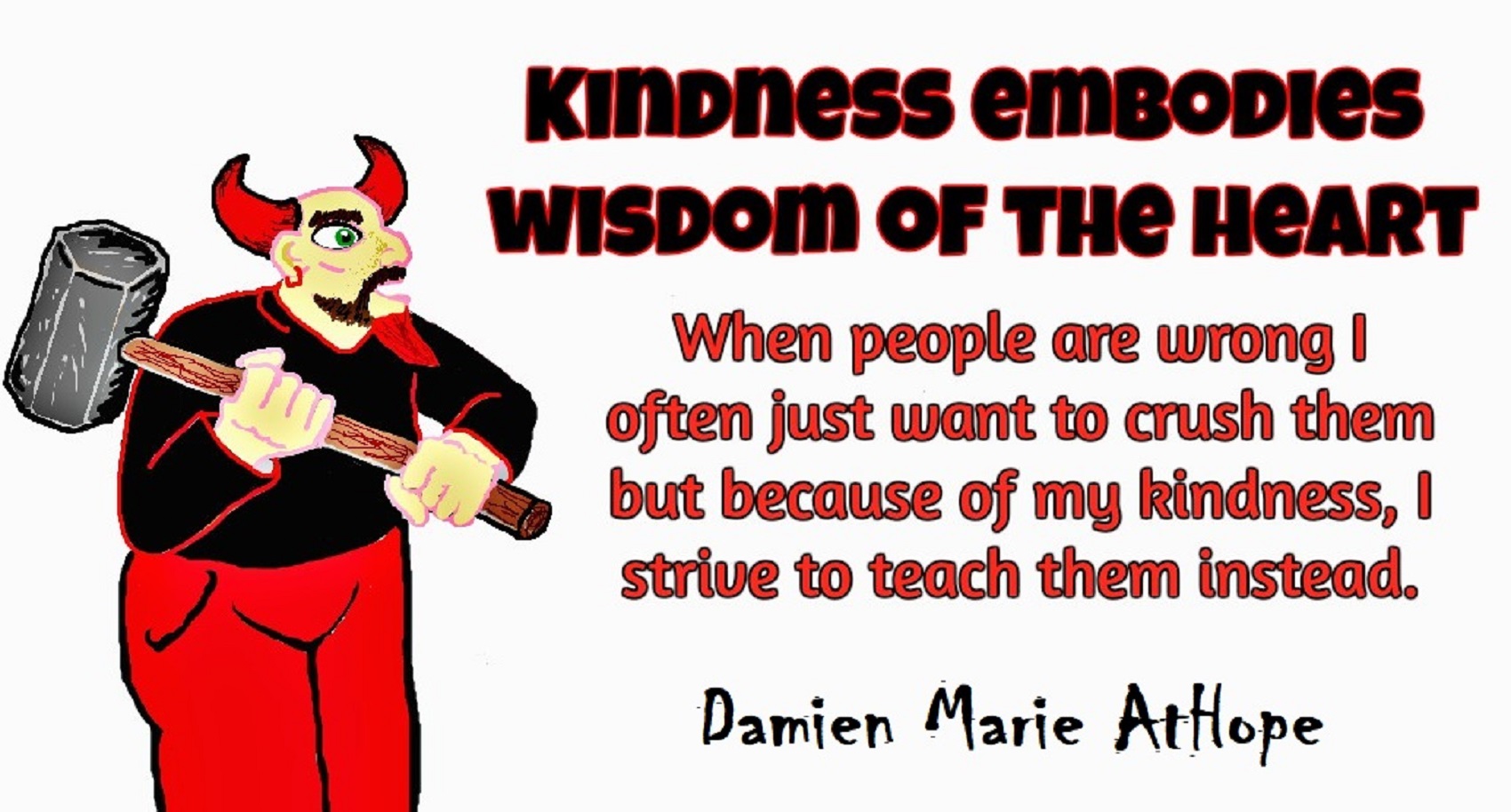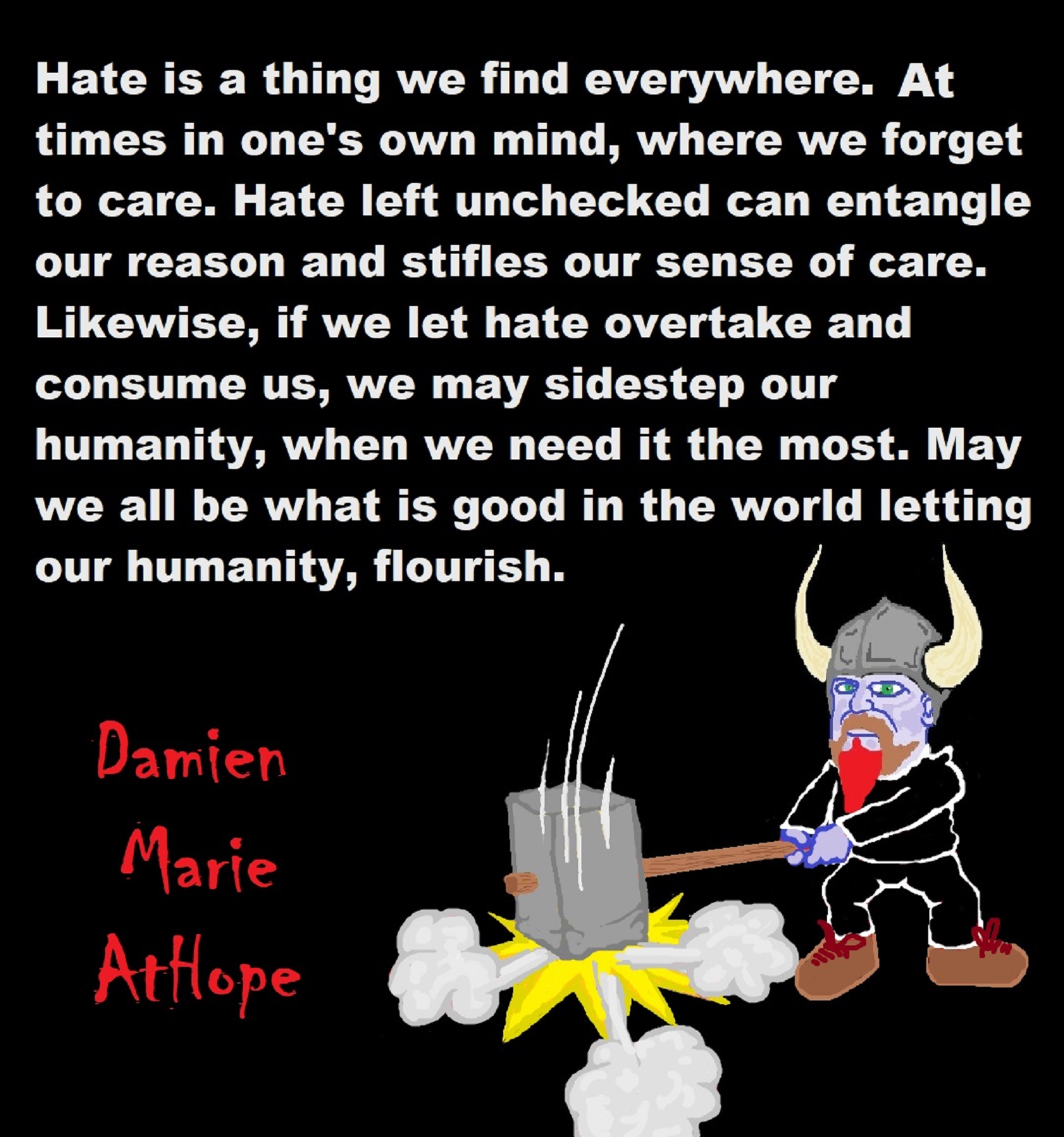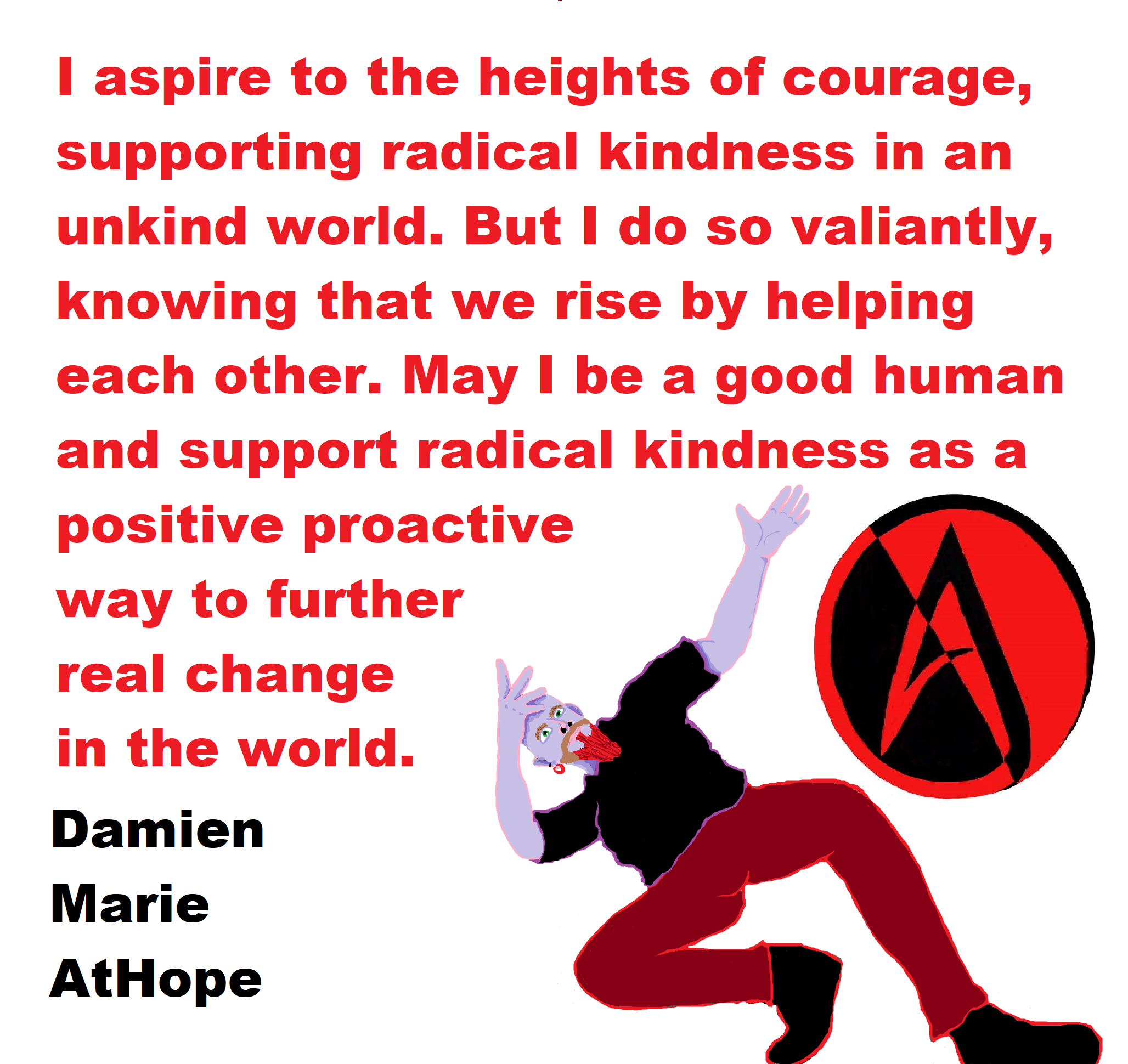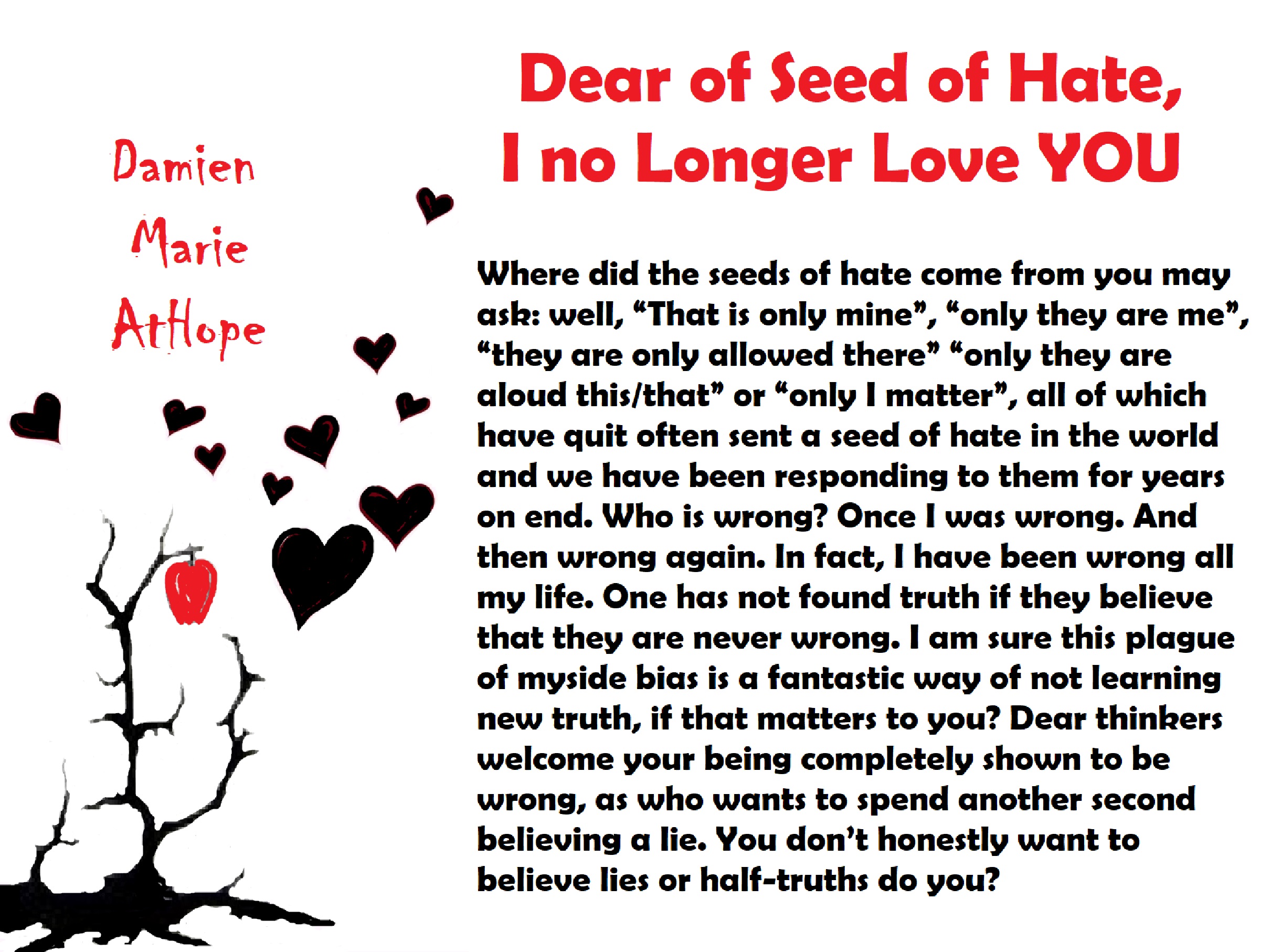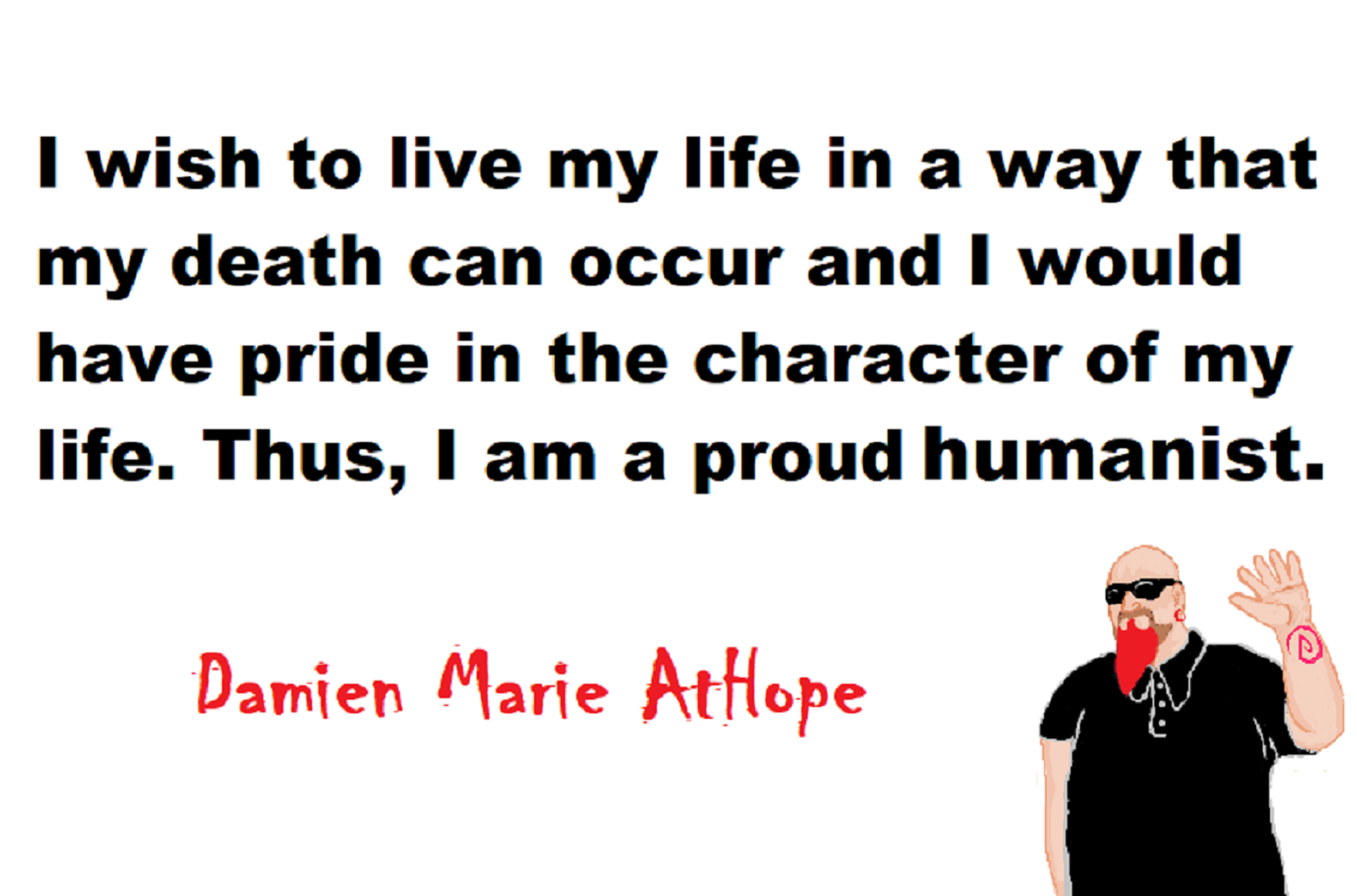
Humanism
According to Fred Edwords at the American Humanist Association
The sort of answer you get to the question “What is humanism?” depends on the sort of humanist you ask! The word “humanism” has a number of meanings. And because authors and speakers often don’t clarify which meaning they intend, those trying to explain humanism can easily become a source of confusion. Fortunately, each meaning of the word constitutes a different type of humanism—the different types being easily separated and defined by the use of appropriate adjectives. So it is relatively easy to summarize the varieties of humanism in this way. Fred Edwords, born 1948, in San Diego, California, is a longtime agnostic or ignostic humanist leader in Washington DC. Read more at: http://americanhumanist.org/humanism/what_is_humanism
Roughly a general classification of humanism and how I see humanism is a philosophical and ethical stance that emphasizes the value and agency of human beings, individually and collectively, and generally prefers critical thinking and evidence (rationalism, empiricism) over established doctrine or faith (fideism). The meaning of the term humanism has fluctuated, according to the successive intellectual movements which have identified with it. Generally, however, humanism refers to a perspective that affirms some notion of human freedom and progress. In modern times, humanist movements are typically aligned with secularism, and today “Humanism” typically refers to a non-theistic life stance centred on human agency, and looking to science instead of religious dogma in order to understand the world. https://en.wikipedia.org/wiki/Humanism
Humanism’s Origins
There was a time when the term “Humanism” was first adopted in thinking is somewhat unknown.
6th-century BCE pre-Socratic Greek philosophers Thales of Miletus and Xenophanes of Colophon were the first in the region to attempt to explain the world in terms of human reason rather than myth and tradition, thus can be said to be the first Greek humanists.
The term is most commonly applied to the cultural movement in Renaissance Europe originating in Italy characterized by a revival of Classical lettersIt is, certain that both and the re-adopting of Latin letters as the staple of human culture were responsible for the name “hu manists”. The term umanisa was in effect an equivalent to the terms “classical scholar.” Literoe humaniores “new learning” was in contrast to and against the Literoe sacroe of scholasticism.
This movement dates to the 13th century and the work of the Florentine scholar-statesman Brunetto Latini (c. 1220–1294) who was an Italian philosopher, scholar, and Dante’s guardian and teacher after the death of his father. Dante immortalized him in the Divine Comedy placing Latini within the third ring of the Seventh Circle with the Sodomites, and writes of the “clerks and great and famous scholars, defiled in the world by one and the same sin”. Contrary to a still widely current interpretation, especially by those moderns calling themselves “humanists”, most specialists now do not characterize Renaissance humanism as a philosophical movement, nor in any way as anti-Christian or even anti-clerical.
Humanism was not an ideological program but a body of literary knowledge and linguistic skill based on the “revival of good letters”, which was a revival of a late-antique philology and grammar, This is how the word “humanist” was understood by contemporaries, and if scholars would agree to accept the word in this sense rather than in the sense in which it was used in the nineteenth century we might be spared a good deal of useless argument. That humanism had profound social and even political consequences of the life of Italian courts is not to be doubted. But the idea that as a movement it was in some way inimical to the Christian Church, or to the conservative social order in general is one that has been put forward for a century and more without any substantial proof being offered. Some, like Salutati, were the Chancellors of Italian cities, but the majority were ordained as priests, and many worked as senior officials of the Papal court. Humanist Renaissance popes Nicholas V, Pius II, Sixtus IV, and Leo X wrote books and amassed huge libraries. The historian Jacob Burckhardt, in his classic work, In the high Renaissance, in fact, there was a hope that more direct knowledge of the wisdom of antiquity, including the writings of the Church fathers, the earliest known Greek texts of the Christian Gospels, and in some cases even the Jewish Kabbalah, would initiate a harmonious new era of universal agreement. With this end in view, Renaissance Church authorities afforded humanists what in retrospect appears a remarkable degree of freedom of thought. One humanist, the Greek Orthodox Platonist Gemistus Pletho (1355–1452), based in Mystras, Greece (but in contact with humanists in Florence, Venice, and Rome) taught a Christianised version of pagan polytheism.
The Italian Humanists were not concerned in the reformatory movements of the fifteenth century. They drifted into a palpable paganism or semi-paganism “more or less emphasized “vera virtus” by which they meant “true excellence,” the self-wrought development of human faculties and powers. “. By the mid-to-late 16th century, even the universities, though still dominated by Scholasticism, began to demand that Aristotle be read in accurate texts edited according to the principles of Renaissance philology, thus setting the stage for Galileo’s quarrels with the outmoded habits of Scholasticism.
Just as artist and inventor Leonardo da Vinci — partaking of the zeitgeist though not himself a humanist – advocated study of human anatomy, nature, and weather to enrich Renaissance works of art, so Spanish-born humanist Juan Luis Vives (c. 1493–1540) advocated observation, craft, and practical techniques to improve the formal teaching of Aristotelian philosophy at the universities, helping to free them from the grip of Medieval Scholasticism. Thus, the stage was set for the adoption of an approach to natural philosophy, based on empirical observations and experimentation of the physical universe, making possible the advent of the age of scientific inquiry that followed the Renaissance. Early humanists shared in large part a realism that rejected traditional assumptions and aimed instead at the objective analysis of perceived experience.
To humanism is owed the rise of modern social science, which emerged not as an academic discipline but rather as a practical instrument of social self-inquiry. Humanists avidly read history, taught it to their young, and, perhaps most important, wrote it themselves. They were confident that proper historical method, by extending across time their grasp of human reality, would enhance their active role in the present. Then humanism embodied an individualistic and critical spirit shifting of emphasis from religious to secular concerns. Early humanists saw no conflict between reason and their Christian faith. They inveighed against the abuses of the Church, but not against the Church itself, much less against religion. For them, the word “secular” carried no connotations of disbelief – that would come later, in the nineteenth century. In the Renaissance to be secular meant simply to be in the world rather than in a monastery.
Humanism as critical scrutiny and concern with detail
Humanistic realism bespoke a comprehensively critical attitude. Indeed, the productions of early humanism constituted a manifesto of independence, at least in the secular world, from all preconceptions and all inherited programs. The same critical self-reliance shown by Coluccio Salutati in his textual emendations and Boccaccio in his interpretations of myth was evident in almost the whole range of humanistic endeavor. It was cognate with a new specificity, a profound concern with the precise details of perceived phenomena, that took hold across the arts and the literary and historical disciplines and would have profound effects on the rise of modern science. The increasing prominence of mathematics as an artistic principle and academic discipline was a testament to this development.
Important Philosophers of Humanism:
Epicurus, Desiderus Erasmus, Baruch Spinoza, David Hume, Jeremy Bentham, John Stuart Mill, Thomas Paine, Paul Kurtz, & Keith Parsons
Humanism now:
Humanism an outlook or system of thought attaching prime importance to human rather than divine or supernatural matters. Humanist beliefs stress the potential value and goodness of human beings, emphasize common human needs, and seek solely rational ways of solving human problems. Humanism is a philosophical and ethical stance that emphasizes the value and agency of human beings, individually and collectively, and generally prefers critical thinking and evidence (rationalism, empiricism) over established doctrine or faith (fideism/faithism). The meaning of the term humanism has fluctuated, according to the successive intellectual movements which have identified with it.
Generally, however, humanism refers to a perspective that affirms some notion of human freedom and progress. In modern times, humanist movements are typically aligned with secularism, and today “Humanism” typically refers to a non-theistic life stance centered on human agency, and looking to science instead of religious dogma in order to understand the world. Humanism can be thought of as any system or mode of thought or action in which human interests, values, and dignity predominate, devotion to or study of the humanities such as studies, principles, or culture of the humanists. In philosophy, humanism involves a variety of ethical theory and practice that emphasizes reason, scientific inquiry, and human fulfillment in the natural world and often rejects the importance of belief in God. Or can be a denial of any power or moral value superior to that of humanity; the rejection of religion in favor of a belief in the advancement of humanity by its own efforts thus humanism as human-centeredness.
In modern times, humanist movements are typically aligned with secularism and with non-theistic religions. Historically, however, this was not always the case. Humanism as a philosophy is a variety of ethical theory and practice that emphasizes reason, scientific inquiry, and human fulfillment in the natural world and often rejects the importance of belief in God. Humanism is a philosophical and ethical stance that emphasizes the value and agency of human beings, individually and collectively, and generally prefers critical thinking and evidence (rationalism, empiricism) over established doctrine or faith (fideism). The meaning of the term humanism has fluctuated, according to the successive intellectual movements which have identified with it. Generally, however, humanism refers to a perspective that affirms some notion of a “human nature” (sometimes contrasted with antihumanism).
Secular humanism:
Secular humanism is a comprehensive life stance or worldview which embraces human reason, ethics, social justice, altruistic morality and distributive justice as the basis of decision-making, philosophical naturalism, and consciously rejects supernatural claims, religious dogma, theistic faith and religiosity, pseudoscience, and superstition. It is sometimes referred to as Humanism (with a capital H and no qualifying adjective).
Secular (adj.) 1300, “living in the world, not belonging to a religious order,” also “belonging to the state,” from Old French seculer (Modern French séculier), from Late Latin saecularis “worldly, secular, pertaining to a generation or age,” from Latin saecularis “of an age, occurring once in an age,” from saeculum “age, span of time, generation.”
According to Watkins, this is probably from PIE *sai-tlo-, with instrumental element *-tlo- + *sai- “to bind, tie” (sinew), extended metaphorically to successive human generations as links in the chain of life. Another theory connects it with words for “seed,” from PIE root *se- “to sow” (sow, and compare Gothic mana-seþs “mankind, world,” literally “seed of men”).
Secularism is the principle of the separation of government institutions and persons mandated to represent the state from religious institutions and religious dignitaries. One manifestation of secularism is asserting the right to be free from religious rule and teachings, or, in a state declared to be neutral on matters of belief, from the imposition by government of religion or religious practices upon its people. Another manifestation of secularism is the view that public activities and decisions, especially political ones, should be uninfluenced by religious beliefs and/or practices.
Secularism draws its intellectual roots from Greek and Roman philosophers such as Epicurus and Marcus Aurelius; from Age of Enlightenment thinkers such as Denis Diderot,Voltaire, Baruch Spinoza, James Madison, Thomas Jefferson, and Thomas Paine; and from more recent freethinkers and atheists such as Robert Ingersoll and Bertrand Russell.
The purposes and arguments in support of secularism vary widely. In European laicism, it has been argued that secularism is a movement toward modernization, and away from traditional religious values (also known as secularization). This type of secularism, on a social or philosophical level, has often occurred while maintaining an official state church or other state support of religion. In the United States, some argue that state secularism has served to a greater extent to protect religion and the religious from governmental interference, while secularism on a social level is less prevalent. Within countries as well, differing political movements support secularism for varying reasons.
The philosophy or life stance of Secular Humanism (alternatively known by some adherents as Humanism, specifically with a capital H to distinguish it from other forms of humanism) embraces human reason, ethics, and philosophical naturalism while specifically rejecting religious dogma, supernaturalism, pseudoscience, and superstition as the basis of morality and decision making.
Secular Humanism posits that human beings are capable of being ethical and moral without religion or a god. It does not, however, assume that humans are either inherently evil or innately good, nor does it present humans as being superior to nature. Rather, the humanist life stance emphasizes the unique responsibility facing humanity and the ethical consequences of human decisions. Fundamental to the concept of secular humanism is the strongly held viewpoint that ideology—be it religious or political—must be thoroughly examined by each individual and not simply accepted or rejected on faith. Along with this, an essential part of secular humanism is a continually adapting search for truth, primarily through science and philosophy. Many Humanists derive their moral codes from a philosophy of utilitarianism, ethical naturalism, or evolutionary ethics, and some, such as Sam Harris, advocate a science of morality or me as an axiological atheist I am one who advocates for Formal Aixology, ethical/moral realism, and universal ethics. Axiological Atheism Explained: https://damienmarieathope.com/2015/10/30/axiological-atheism-explained/
The International Humanist and Ethical Union (IHEU) is the world union of 117 Humanist, rationalist, irreligious, atheistic, Bright, secular, Ethical Culture, and freethought organizations in 38 countries. The “Happy Human” is the official symbol of the IHEU as well as being regarded as a universally recognized symbol for secular humanism.
According to the IHEU’s bylaw 5.1:
Humanism is a democratic and ethical life stance, which affirms that human beings have the right and responsibility to give meaning and shape to their own lives. It stands for the building of a more humane society through an ethic based on human and other natural values in the spirit of reason and free inquiry through human capabilities. It is not theistic, and it does not accept supernatural views of reality.
Humanistic psychology is a psychological perspective which rose to prominence in the mid-20th century in response to Sigmund Freud’s psychoanalytic theory and B.F. Skinner’s Behaviorism. The approach emphasizes an individual’s inherent drive towards self-actualization and creativity. Psychologists Carl Rogers and Abraham Maslow introduced a positive, humanistic psychology in response to what they viewed as the overly pessimistic view of psychoanalysis. Humanism increasingly designates an inclusive sensibility for our species, planet, and lives. While retaining the definition of the IHEU with regard to the life stance of the individual, inclusive Humanism enlarges its constituency within homo sapiens to consider humans’ broadening powers and obligations.
Humanism and human rights:
The idea of human rights is also closely related to that of natural rights: some acknowledge no difference between the two, regarding them as synonymous, while others choose to keep the terms separate to eliminate association with some features traditionally associated with natural rights. The existence of natural rights has been asserted by different individuals on different premises, such as a priori philosophical reasoning or religious principles. Natural rights, in particular, are considered beyond the authority of any government or international body to dismiss. The Universal Declaration of Human Rights is an important legal instrument enshrining one conception of natural rights into international soft law. Natural rights were traditionally viewed as exclusively negative rights, whereas human rights also comprise positive rights. The preamble to the 1948 Universal Declaration of Human Rights asserts that rights are inalienable: “recognition of the inherent dignity and of the equal and inalienable rights of all members of the human family is the foundation of freedom, justice and peace in the world.”
Humanism and its aspirations:
The most recent of the Humanist Manifestos was published in 2003 by the American Humanist Association (AHA).
The newest one is much shorter, listing six primary beliefs, which echo themes from its predecessors:
- Knowledge of the world is derived by observation, experimentation, physical evidence and rational analysis.
- Humans are an integral part of nature, the result of unguided evolutionary change.
- Ethical values (ethical naturalism) are derived from human need and interest as tested by experience.
- Life’s fulfillment emerges from individual participation in the service of humane ideals.
- Humans are social by nature and find meaning in relationships.
- Working to benefit society maximizes individual happiness.
If you go to the website of the American Humanist Association and click on “issues,” you’ll find this listing:
Secular Government
Scientific Integrity
Human Rights for All
Promoting Peace
Reproductive Freedom
Women’s Rights
LGBT Rights
Civil Rights in America
Categories and Versions of Humanism
I am going to propose a few different categories and versions of humanism broke into connecting classes.
The first category is positive humanism or just humanism.
The second category is neutral humanism or relative/less positive humanism.
The third category is anti-humanism or negative humanism.
The three versions of humanism found in each categories are relatively the same but expressed in very different ways.
The first humanism is open to all humans religious or nonreligious humanism. (positive humanism)
The second is ideological humanism. Not connected to secularism or religion. (positive humanism, neutral humanism or relative/less positive humanism)
The third is secular humanism is open to those who are nontheistic and or nonreligious. (positive humanism)
Religious Humanism?
Religious relation to humanism can be thought of in three categories as well depending on use or nonuse by the religionist often motivated for or against depending how they express or experience their belief or religion.
The first positive humanism, can be a factor if the religionist sees humanism as part of their belief status or a religious requirement to be humanistic. (positive humanism)
The second neutral humanism, can be a factor if the religionist believes one is only required to be humanistic to those who follow, support or are not against their belief status or religion. (neutral humanism or relative/less positive humanism)
The third anti-humanism can be a factor if the religionist believes humans are only meaningful in the relationship to suit the needs of god(s) or religion. (anti-humanism or negative humanism)
Positive Humanism: Positive Psychology and Humanism
I am an Axiological Atheist, which roughly can be understood as a value theory or value science Atheist. Axiology to Atheism is also meant to denote an atheistic rejection of the existence of gods or supreme beings in favor of a “higher absolute” such as humanity, formal axiology, or naturalistic or universal ethical principles. My stating a kind of “higher absolute” is not stating a belief in some absolute morality, instead it is meaning nothing but naturalistic human-centered morality is used or forms of valued good is derived from a rational thinking by humanity (Ie. humanity as the absolute source of ethics and values, and permits individuals to resolve moral problems without resorting to god myths or religious philosophies). Axiological Atheism can be thought to involve ethical/value theory reasoned and moral argument driven atheism, anti-theism, anti-religionism, ignosticism, apatheism, secularism, and humanism. I am an Out Atheist, Antitheist, and Antireligionist as a Valuized Eethical Duty. How can we silently watch as yet another generation is indoctrinated with religious faith, fear, and foolishness? Religion and it’s god myths are like a spiritually transmitted disease of the mind. This infection even once cured holds mental disruption which can linger on for a lifetime. What proof is “faith,” of anything religion claims by faith, as many people have different faith even in the same religion? When you start thinking your “out, atheism, antitheism or antireligionism is not vitally needed just remember all the millions of children being indoctrinated and need our help badly and who desperately need our help with the truth. Three things are common in all religions: “pseudo-science,” “pseudo-history,” and “pseudo-morality.” And my biggest thing of all is the widespread forced indoctrination of children, violating their free choice of what to not believe or believe, I hate forced hereditary religion. And my biggest thing of all is the widespread forced indoctrination of children, violating their free choice of what to not believe or believe, I hate forced hereditary religion.
Formal Axiology (Scientific Axiology/Scientific Value Theory) takes a realistic, or fact-based, view of the world when assessing or understanding value/good/worth. Formal axiology understands that people have and act upon values. Scientific axiologists will seek to understand what those values are, and to analyze their structure. That empirical orientation is why scientific axiology can serve as the formal side of the yet to be developed value sciences. To illustrate this value realism, suppose a theist states they love god(s). Since the science of value has an empirical orientation, a value scientist would see the theistic belief in god(s) not as some actual existing being, instead understand it as a conception in the mind of theist not anything realistic or fact-based. Ref
My core definition of humanism is that humans can solve human problems by human means. I am not saying other things can’t or shouldn’t be added to it but to me a definition of humanism must always contain something coherent to such a thinking or not contradict such as I have offered. Thus, why it is appropriate to say “good without god” when one is a humanist.
References 1, 2, 3, 4, 5, 6, 7
- Talking with Jennifer (Shaw) Hancock (Humanist Educator) on Humanism, Atheism, Beliefs, and Morality
- What Inspires My Anarcho-Humanism?
- I am an Axiological Atheist, with a Rationalist Persuasion, who Supports Anarcho-Humanism
- My Atheistic (socialist-anarchist) Humanism?
- Anarcho-Humanism
- Skepticism and or Rationalism Leads to Humanism and Atheism?
- Easy Definition of Humanism?
- Confusions in Atheism and Humanism
- Atheistic Humanism?
- Categories and Versions of Humanism
- Let’s Discuss Humanism
- Positive Humanism
- Categories and Versions of Humanism
- Easy Definition of Humanism?
- Confusions in Atheism and Humanism
- Atheistic Humanism?
- Positive Humanism
- What Inspires My Anarcho-Humanism?
- My Atheistic (socialist-anarchist) Humanism?
- Skepticism and or Rationalism Leads to Humanism and Atheism?
- Rationalism, Freethinker, Humanism & Secular humanism?
- I am an Axiological Atheist, with a Rationalist Persuasion, who Supports Anarcho-Humanism
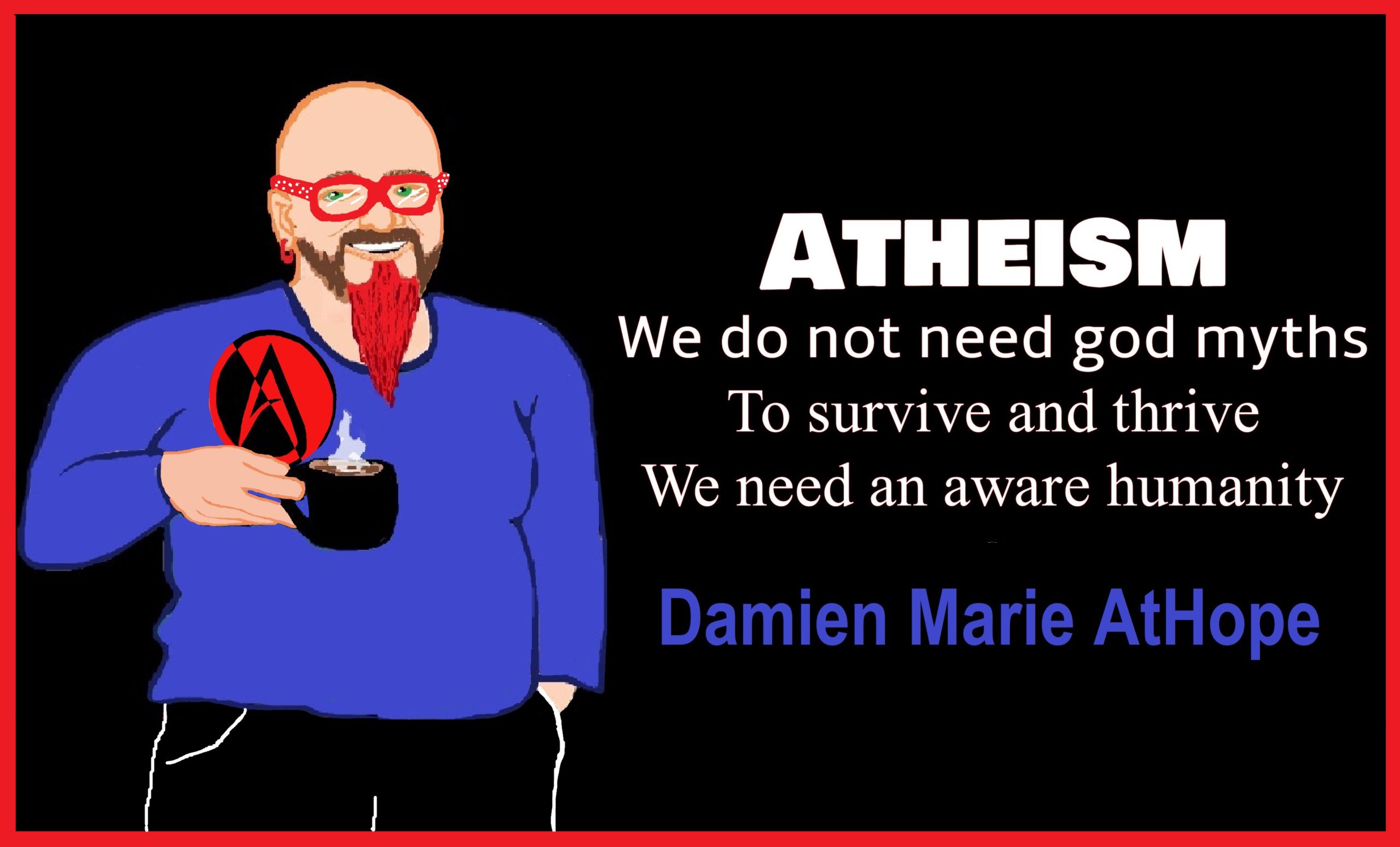

“Theists, there has to be a god, as something can not come from nothing.”
Well, thus something (unknown) happened and then there was something. This does not tell us what the something that may have been involved with something coming from nothing. A supposed first cause, thus something (unknown) happened and then there was something is not an open invitation to claim it as known, neither is it justified to call or label such an unknown as anything, especially an unsubstantiated magical thinking belief born of mythology and religious storytelling.


While hallucinogens are associated with shamanism, it is alcohol that is associated with paganism.
The Atheist-Humanist-Leftist Revolutionaries Shows in the prehistory series:
Show two: Pre-animism 300,000 years old and animism 100,000 years old: related to “Anarchism and Socialism”
Show tree: Totemism 50,000 years old: related to “Anarchism and Socialism”
Show four: Shamanism 30,000 years old: related to “Anarchism and Socialism”
Show five: Paganism 12,000 years old: related to “Anarchism and Socialism”
Show six: Emergence of hierarchy, sexism, slavery, and the new male god dominance: Paganism 7,000-5,000 years old: related to “Anarchism and Socialism” (Capitalism) (World War 0) Elite and their slaves!
Prehistory: related to “Anarchism and Socialism” the division of labor, power, rights, and recourses: VIDEO
Pre-animism 300,000 years old and animism 100,000 years old: related to “Anarchism and Socialism”: VIDEO
Totemism 50,000 years old: related to “Anarchism and Socialism”: VIDEO
Shamanism 30,000 years old: related to “Anarchism and Socialism”: VIDEO
Paganism 12,000 years old: related to “Anarchism and Socialism” (Pre-Capitalism): VIDEO
Paganism 7,000-5,000 years old: related to “Anarchism and Socialism” (Capitalism) (World War 0) Elite and their slaves: VIEDO
Paganism 5,000 years old: progressed organized religion and the state: related to “Anarchism and Socialism” (Kings and the Rise of the State): VIEDO
Paganism 4,000 years old: related to “Anarchism and Socialism” (First Moralistic gods, then the Origin time of Monotheism): VIEDO
I do not hate simply because I challenge and expose myths or lies any more than others being thought of as loving simply because of the protection and hiding from challenge their favored myths or lies.
The truth is best championed in the sunlight of challenge.
An archaeologist once said to me “Damien religion and culture are very different”
My response, So are you saying that was always that way, such as would you say Native Americans’ cultures are separate from their religions? And do you think it always was the way you believe?
I had said that religion was a cultural product. That is still how I see it and there are other archaeologists that think close to me as well. Gods too are the myths of cultures that did not understand science or the world around them, seeing magic/supernatural everywhere.
I personally think there is a goddess and not enough evidence to support a male god at Çatalhöyük but if there was both a male and female god and goddess then I know the kind of gods they were like Proto-Indo-European mythology.
This series idea was addressed in, Anarchist Teaching as Free Public Education or Free Education in the Public: VIDEO
Our 12 video series: Organized Oppression: Mesopotamian State Force and the Politics of power (9,000-4,000 years ago), is adapted from: The Complete and Concise History of the Sumerians and Early Bronze Age Mesopotamia (7000-2000 BC): https://www.youtube.com/watch?v=szFjxmY7jQA by “History with Cy“
Show #1: Mesopotamian State Force and the Politics of Power (Samarra, Halaf, Ubaid)
Show #2: Mesopotamian State Force and the Politics of Power
Show #3: Mesopotamian State Force and the Politics of Power (Uruk and the First Cities)
Show #4: Mesopotamian State Force and the Politics of Power (First Kings)
Show #5: Mesopotamian State Force and the Politics of Power (Early Dynastic Period)
Show #6: Mesopotamian State Force and the Politics of Power
Show #7: Mesopotamian State Force and the Politics of Power (Sargon and Akkadian Rule)
Show #9: Mesopotamian State Force and the Politics of Power (Gudea of Lagash and Utu-hegal)
Show #12: Mesopotamian State Force and the Politics of Power (Aftermath and Legacy of Sumer)

The “Atheist-Humanist-Leftist Revolutionaries”
Cory Johnston ☭ Ⓐ Atheist Leftist @Skepticallefty & I (Damien Marie AtHope) @AthopeMarie (my YouTube & related blog) are working jointly in atheist, antitheist, antireligionist, antifascist, anarchist, socialist, and humanist endeavors in our videos together, generally, every other Saturday.
Why Does Power Bring Responsibility?
Think, how often is it the powerless that start wars, oppress others, or commit genocide? So, I guess the question is to us all, to ask, how can power not carry responsibility in a humanity concept? I know I see the deep ethical responsibility that if there is power their must be a humanistic responsibility of ethical and empathic stewardship of that power. Will I be brave enough to be kind? Will I possess enough courage to be compassionate? Will my valor reach its height of empathy? I as everyone, earns our justified respect by our actions, that are good, ethical, just, protecting, and kind. Do I have enough self-respect to put my love for humanity’s flushing, over being brought down by some of its bad actors? May we all be the ones doing good actions in the world, to help human flourishing.
I create the world I want to live in, striving for flourishing. Which is not a place but a positive potential involvement and promotion; a life of humanist goal precision. To master oneself, also means mastering positive prosocial behaviors needed for human flourishing. I may have lost a god myth as an atheist, but I am happy to tell you, my friend, it is exactly because of that, leaving the mental terrorizer, god belief, that I truly regained my connected ethical as well as kind humanity.
Cory and I will talk about prehistory and theism, addressing the relevance to atheism, anarchism, and socialism.
At the same time as the rise of the male god, 7,000 years ago, there was also the very time there was the rise of violence, war, and clans to kingdoms, then empires, then states. It is all connected back to 7,000 years ago, and it moved across the world.
Cory Johnston: https://damienmarieathope.com/2021/04/cory-johnston-mind-of-a-skeptical-leftist/?v=32aec8db952d
The Mind of a Skeptical Leftist (YouTube)
Cory Johnston: Mind of a Skeptical Leftist @Skepticallefty
The Mind of a Skeptical Leftist By Cory Johnston: “Promoting critical thinking, social justice, and left-wing politics by covering current events and talking to a variety of people. Cory Johnston has been thoughtfully talking to people and attempting to promote critical thinking, social justice, and left-wing politics.” http://anchor.fm/skepticalleft
Cory needs our support. We rise by helping each other.
Cory Johnston ☭ Ⓐ @Skepticallefty Evidence-based atheist leftist (he/him) Producer, host, and co-host of 4 podcasts @skeptarchy @skpoliticspod and @AthopeMarie
Damien Marie AtHope (“At Hope”) Axiological Atheist, Anti-theist, Anti-religionist, Secular Humanist. Rationalist, Writer, Artist, Poet, Philosopher, Advocate, Activist, Psychology, and Armchair Archaeology/Anthropology/Historian.
Damien is interested in: Freedom, Liberty, Justice, Equality, Ethics, Humanism, Science, Atheism, Antiteism, Antireligionism, Ignosticism, Left-Libertarianism, Anarchism, Socialism, Mutualism, Axiology, Metaphysics, LGBTQI, Philosophy, Advocacy, Activism, Mental Health, Psychology, Archaeology, Social Work, Sexual Rights, Marriage Rights, Woman’s Rights, Gender Rights, Child Rights, Secular Rights, Race Equality, Ageism/Disability Equality, Etc. And a far-leftist, “Anarcho-Humanist.”
I am not a good fit in the atheist movement that is mostly pro-capitalist, I am anti-capitalist. Mostly pro-skeptic, I am a rationalist not valuing skepticism. Mostly pro-agnostic, I am anti-agnostic. Mostly limited to anti-Abrahamic religions, I am an anti-religionist.
To me, the “male god” seems to have either emerged or become prominent around 7,000 years ago, whereas the now favored monotheism “male god” is more like 4,000 years ago or so. To me, the “female goddess” seems to have either emerged or become prominent around 11,000-10,000 years ago or so, losing the majority of its once prominence around 2,000 years ago due largely to the now favored monotheism “male god” that grow in prominence after 4,000 years ago or so.
My Thought on the Evolution of Gods?
Animal protector deities from old totems/spirit animal beliefs come first to me, 13,000/12,000 years ago, then women as deities 11,000/10,000 years ago, then male gods around 7,000/8,000 years ago. Moralistic gods around 5,000/4,000 years ago, and monotheistic gods around 4,000/3,000 years ago.
To me, animal gods were likely first related to totemism animals around 13,000 to 12,000 years ago or older. Female as goddesses was next to me, 11,000 to 10,000 years ago or so with the emergence of agriculture. Then male gods come about 8,000 to 7,000 years ago with clan wars. Many monotheism-themed religions started in henotheism, emerging out of polytheism/paganism.

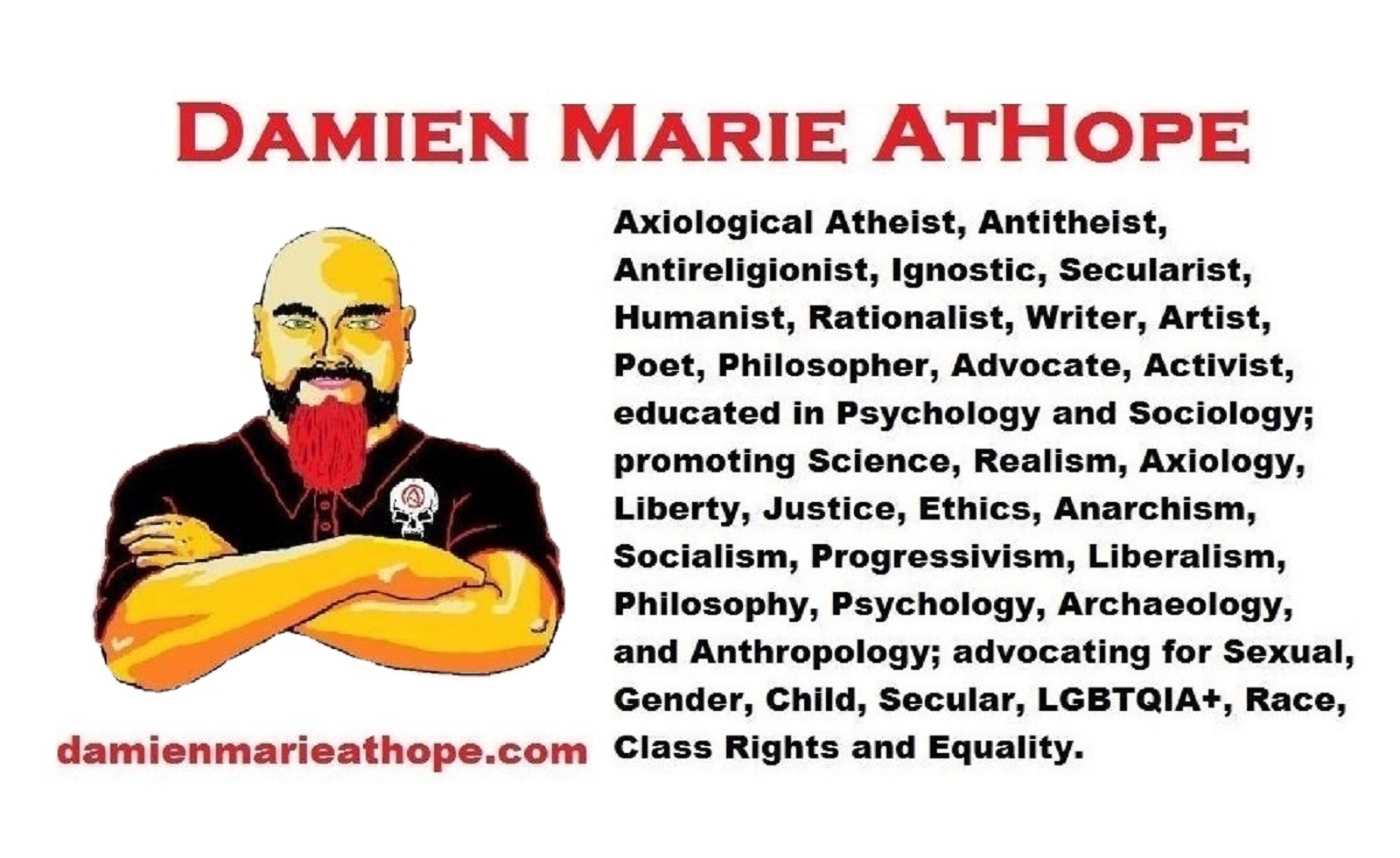
Damien Marie AtHope (Said as “At” “Hope”)/(Autodidact Polymath but not good at math):
Axiological Atheist, Anti-theist, Anti-religionist, Secular Humanist, Rationalist, Writer, Artist, Jeweler, Poet, “autodidact” Philosopher, schooled in Psychology, and “autodidact” Armchair Archaeology/Anthropology/Pre-Historian (Knowledgeable in the range of: 1 million to 5,000/4,000 years ago). I am an anarchist socialist politically. Reasons for or Types of Atheism
My Website, My Blog, & Short-writing or Quotes, My YouTube, Twitter: @AthopeMarie, and My Email: damien.marie.athope@gmail.com

